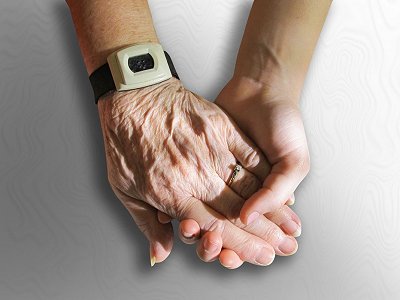
WHEN YOU GET TIRED OF DOING WHAT’S RIGHT
At the end of the second letter to the Thessalonians, the apostle Paul said: brothers and sisters, do not be weary in doing what is right.
It’s easy to lose in that phrase the clear implication that we can grow weary in doing what is right.
At another stage in the letter, Paul says: for you yourselves know how you ought to imitate us. This is another fascinating insight. At other points in his letters, Paul talks about the importance of being filled with the Holy Spirit. It is God’s presence in our hearts that enables us to live for him. So you might have thought Paul would say this every time, but this is not the only place where he says that Christians are to imitate him.
Paul recognised the power of imitation. Our culture talks instead about self-expression, being your own person, becoming the real me. It comes from believing every person is a free individual, able to be what they want to be. The reality is quite different. Human beings are shameless copiers of one another. We watch what other people do: how they dress, what they like, how they talk. And we are more likely to copy influential people. When we are growing up, these are parents, brothers and sisters, wider family and friends. But we quickly start to imitate those we admire in the wider world, too, especially as media gives us easy access to these sources. Why else would we talk about online influencers if they didn’t influence others?
The risk is when wrongdoing is not frowned upon in wider culture. We take our cue from public leaders across the spectrum of professions and across the world itself. When having no shame seems to protect you better than having values you don’t always live up to, it creates a canopy within which other people can live the same way. That’s one reason why we should pray for leaders in all walks of life in all countries, because they are very influential permission givers. ‘If they get away with it, why can’t I?’ easily becomes an excuse for wrongdoing.
Being alert to how we copy others helps us to follow Jesus, because some sources are better than others. It is wrong to place anyone on a pedestal because every human being, every Christian, has flaws, but when you look back over your life, you realise just how influential some people have been in helping you to grow in faith. In reality, we are all offline influencers. How we choose to live affects how others choose to live.
Another reason we can grow weary in doing what is right is because though we have a legal system that is there to punish wrongdoing, there are fewer rewards or thanks for doing the right thing. It’s said that doing good is a reward in itself, and there is some truth in that. We have been created to look out for others and when we do that, it makes us feel better. But we are also short of encouragement in life. Perhaps it is the effect of having a consumer culture where we view ourselves primarily as customers who expect a certain level of quality for our money. But when this leaks out of the world of commerce into private relationships, it can become harmful; we stop thanking people and encouraging them.
Words have profound power. We were brought up on the saying: sticks and stones may break my bones, but words can never hurt me, but it is completely untrue. Words can really wound people, and social media has allowed horrible words to be spoken in public by anyone against anyone with everyone looking on. Words have become weaponised in a way we could never have imagined at the start of our lives.
But the other side to this is how easy it is to encourage another person in a conversation. Doing this lifts another and can contribute greatly to them not losing heart in doing what is right. It is a distinctive way we can live for Christ and resist the vindictiveness of much modern culture.
A third reason we find persistence in doing what is right is that it’s hard work putting other people first, listening to them and looking out for them and sometimes having to overlook how we feel at that moment. Jesus invites his followers to take up their cross and follow him and there is a lot of heavy lifting involved in journeying through the day with a metaphorical big wooden cross over our backs. No wonder it’s challenging. But this is also the Saviour who said we can find rest for our souls, ‘for my yoke is easy and my burden is light’. It’s a paradox of our faith: in giving of ourselves, we find life in all its fulness; in sacrificing our lives for God and for others, we find eternal life.
We inhabit a culture where people are preoccupied with self-care. There are many reasons why this has developed, but one of them has to be because we are not looking out for other people and prioritising their needs. When this happens, people are left to look after themselves more; people retreat into their own space of wellness. Christian community can change this culture: where we look after other people’s needs and other people look after ours in return.
There are tipping points in all communities, where the seesaw gets out of balance. In Christian community, the seesaw should find a gentle middle, where the seesaw sways first one way and then the other as needs are met. Our calling then is to help other communities – families, neighbourhoods, clubs, workplaces - find this balance that comes from knowing and sharing the loving kindness of God.
POPULAR ARTICLES

God In The Cow Shed
2020 has been dominated by the C word. Not that C word. I mean conspiracy theory involve space. Some people believe the

Viral With The Holy Spirit
Since the tech revolution, insurgent new start-ups have enjoyed using the word ‘disruption’

Long Lost family
Some types of storytelling mess with your brain. Intentionally. Like one of those novels where you assume

Valuing Age
Lots of work is being done round unconscious bias in society, especially around gender and ethnicity

